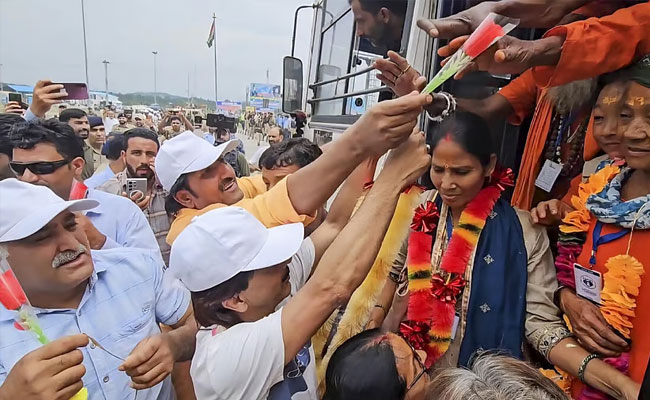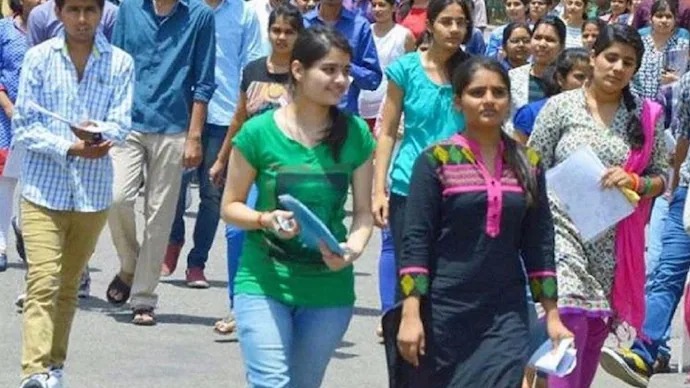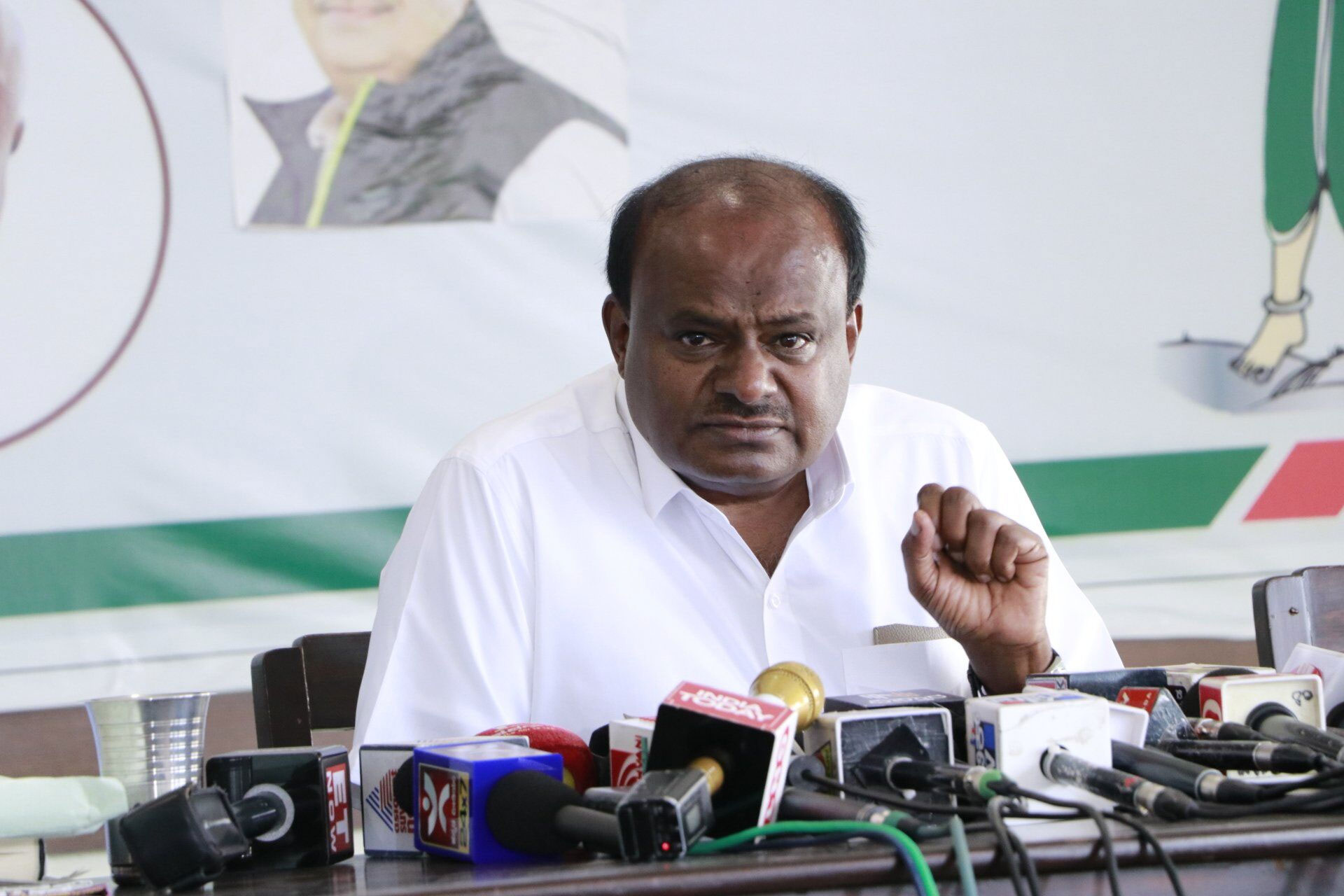Srinagar: As the annual Amarnath Yatra commenced on Thursday amid heightened security measures, Kashmiri Muslims reaffirmed the Valley’s enduring legacy of communal harmony by warmly welcoming Hindu pilgrims undertaking the spiritual journey.
The 38-day pilgrimage began simultaneously from the twin base camps at Nunwan in Pahalgam and Baltal in Sonamarg. While the yatra is a religious undertaking for thousands of Hindu devotees, the event once again became a symbol of interfaith unity, with local Muslims lining the route to greet the yatris.
From the moment pilgrims entered the Valley, they were met with scenes of generosity and camaraderie. At the Nayvug tunnel near Qazigund along the Srinagar-Jammu National Highway, local youth, students, and civil society volunteers gathered early in the morning to distribute drinking water and snacks, as reported by Deccan Herald.
Villagers also showered pilgrims with flower petals and offered ‘Izzbandh’, a traditional Kashmiri incense used to ward off evil. Women along the roadside offered kehwa—Kashmir’s signature saffron tea—and dried fruits.
“This is our tradition. We see them not as outsiders, but as our guests,” DH quoted 62-year-old Ghulam Ahmad from Anantnag, who had set up a water station outside his home. “They come here with devotion and faith, and we must ensure they feel welcome and safe,” he added.
Imtiyaz Ahmad, a Srinagar resident who brought his children to greet the pilgrims, echoed similar sentiments: “This is a beautiful moment of unity. We want our visitors to feel safe and loved here in our land.”
While the yatra continues under tight security to prevent any potential threats, the on-ground atmosphere remained calm and celebratory. Neelam Sharma, a first-time pilgrim from Delhi, expressed her gratitude for the hospitality. “We had heard of Kashmir’s beauty, but we are truly moved by the warmth of its people. The love and care we’ve received is unforgettable,” DH quoted Sharma as saying.
Let the Truth be known. If you read VB and like VB, please be a VB Supporter and Help us deliver the Truth to one and all.
Bengaluru: A campaign opposing the dress code at Mount Carmel College has led to discussions over whether such regulations amount to moral policing and restrict students’ freedom of expression.
The campaign, shared on Instagram by Collective Bangalore, referred to the code as “new”. The college principal said the rules have existed for years, and the guidelines bar students from wearing flip-flops, cargo pants, round or V-neck T-shirts and sporting coloured hair. Male students are also required to maintain short and well-groomed hair.
Students have raised concerns not only about the dress code but also about restrictions on movement within the campus and the cancellation of student elections. Three students told Metrolife that they faced uncomfortable checks at the college gate. A first-year female student said she was once sent home for wearing pants with pockets and, on another occasion, for a sleeveless blouse despite a shirt worn over it. A male student said the rules created “unwanted fear among girls” and added that he has been repeatedly asked to cut his long hair.
Opinions from faculty and administrators across other institutions remain divided. Joshua Samuel, principal of Baldwin Methodist College, said dress codes ensure decency and equality. He added that his students generally accept them. Y C Kamala, associate professor at Government First Grade College, Malleswaram, said a dress code was “necessary” during college hours to keep the focus on academics. She also acknowledged that the idea of “decency” is subjective.
Venugopal K R, former principal of University Visvesvaraya College of Engineering, supporting uniforms said that they help reduce visible disparities among students from different economic backgrounds. He compared moderate attire in classrooms to lab coats, which he said promote discipline and concentration.
In contrast, S Japhet, former vice-chancellor of Bengaluru Central University, opposed mandatory dress codes, particularly in women’s colleges. He said dress is “a form of self-expression.” He also argued that restrictions in the name of decency amount to moral policing. According to him such decision, should be made in consultation with students, parents and alumni.
Some academics described dress codes as a form of surveillance. A journalism professor said rules rooted in vague ideas of decency often lead to micromanagement, while Rolla Das, assistant professor at a private university, said arbitrary restrictions tend to reinforce veiled patriarchy and have a greater impact on students from marginalised groups.
Drawing parallels with the hijab ban controversy, critics of strict dress codes have warned that such rules could infringe on fundamental freedoms. Supporters of the dress code argue that the step encourage discipline, equality and academic focus.



